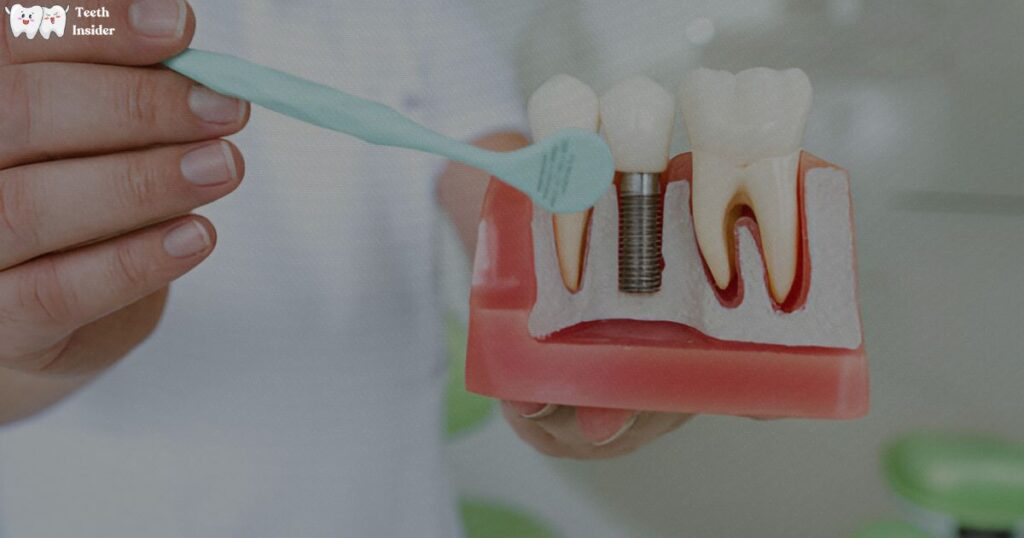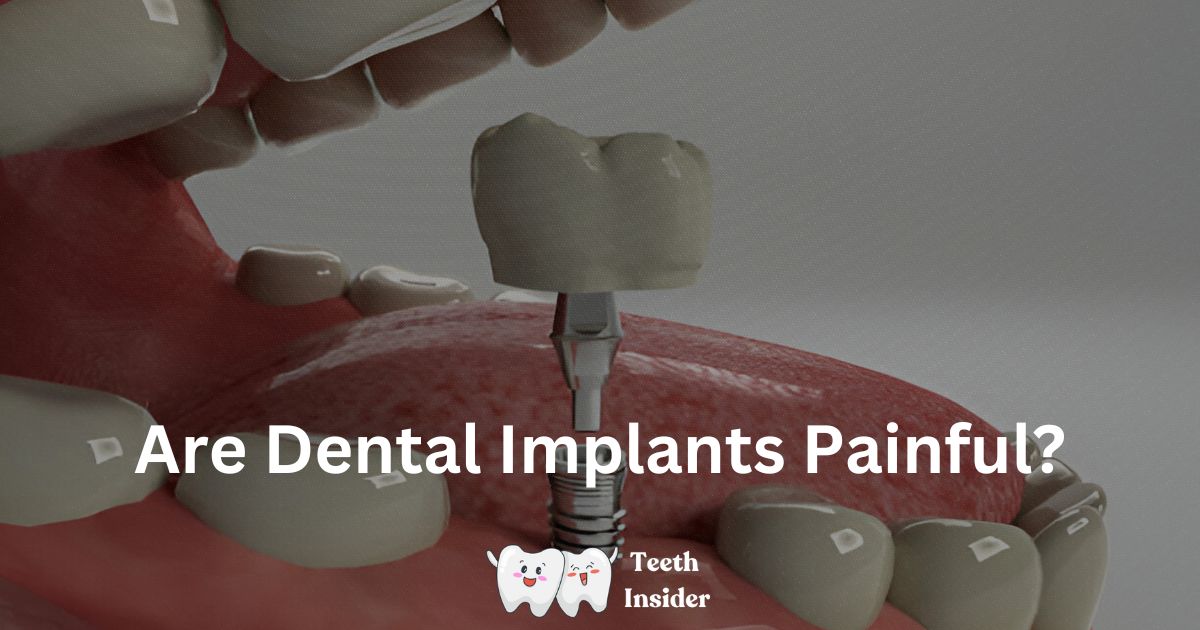Are you thinking about getting dental implants, but you’re afraid of the pain? For many, it’s a common concern. In this guide, we will explain dental implant pain. We will answer all your questions and concerns in a way that is comforting and easy to understand.
Understanding Dental Implants
Before we discuss pain, let’s learn about dental implants and how they work. Dental implants are a well-liked and durable tooth replacement option. To Replace a missing tooth, a fake root is implanted in the jawbone for support.
Also Read: When to Take a Pregnancy Test After Implant Removal?

The Process of Dental Implants
Dental implant surgery has many steps. Knowing them can ease worry about pain. Here’s a quick rundown:
Initial Consultation: First, you will have a consultation with a dentist. They will decide if dental implants are right for you.
Preparation: Preparations may include a bone graft to strengthen the jawbone, when needed. This phase encourages a smooth implant integration process.
Implant Placement: During surgery, the dentist will place the implant carefully into your jawbone. You won’t experience any pain throughout this procedure thanks to local anesthesia.
Osseointegration: Osseointegration is the process of an implant fusing with your jawbone, and it takes time. This is necessary for a stable and long-lasting implant but may take several months.
Abutment Placement: After the implant has fused with the bone, a small surgery may be required to attach the abutment to the new tooth.
Final Restoration: The dental crown is attached to the abutment and looks and works like a real tooth.

Is Dental Implant Surgery Painful?
Let’s now discuss the primary query: Is dental implant surgery uncomfortable? The good news is that there shouldn’t be any pain during the procedure. To ensure you won’t feel any pain during the procedure, local anesthesia is used to numb the mouth.
But as the anesthesia wears off, you might feel a little uncomfortable. This is a typical stage of the recovery procedure. Many patients find relief from discomfort by using over-the-counter pain relievers like ibuprofen. The discomfort you feel after getting implants can vary. It depends on the number and individual factors.
Usually, discomfort doesn’t go away for ten days following the procedure. This pain is a sign that the new implant is settling in and your body is healing. To recover quickly, follow your dentist’s instructions after surgery.
It’s imperative that you get in touch with your dentist right away if your pain persists after 10 days. If you have long-lasting pain after getting an implant, it could mean you have an infection. You need to get treatment right away to keep the implant working well.
Also Read: How Much are Dental Implants?
Managing Pain and Discomfort
After surgery, dentists provide medication to reduce discomfort and anxiety caused by pain. If needed, doctors may prescribe medication, but often, over-the-counter pain relievers are enough.
Resting and following your dentist’s recommendations is crucial during the healing phase. A few days of mild swelling is to be expected, and washing your mouth with salt water can help the healing process. Restricting your diet to liquids for a day or two and avoiding hot foods can also help reduce discomfort.
The Extended Advantages of Dental Implants
Don’t stress over temporary pain, focus on the lasting advantages of dental implants. Dental implants are intended to be a long-term alternative to missing teeth. Once the procedure is done, your smile will be beautifully restored. With proper care, it can last up to 20 years.
Dental implants have many benefits. They give you more confidence. They make eating and speaking easier. also help prevent future dental problems. Dental implants can replace missing teeth and make your life better and pain-free.
Conclusion
After getting dental implants, you might feel some temporary discomfort. However, you can easily manage it by being careful and taking medicine. Dental implants provide long-term advantages that greatly exceed any temporary discomfort. Dentists want you to feel at ease throughout the whole process, from start to finish.
Don’t be afraid of pain, learn about life-changing dental implants. Talk to a trustworthy dentist to see if dental implants are right for you. To start your confident smile, just have a pain-free consultation.
Frequently Asked Questions (FAQs)
Is surgery for dental implants painful?
No, the local anesthetic makes the surgery itself painless. Some soreness is common after surgery, but it can be controlled with medicine.
How much time does it take to recover?
Usually, recovery takes up to ten days. Osseointegration and complete healing can take several months.
Are dental implants a long-term fix?
Indeed, with the right maintenance, dental implants can last up to 20 years or longer.
Can I resume my normal diet after getting an implant?
After a few days, you might need to follow a soft diet, but at some point, you can resume your regular eating schedule.
What happens if my pain lasts a long time?
Contact your dentist right away if you have persistent pain, as it could be a sign of infection.
Also Read: What Are Dental Implants?

